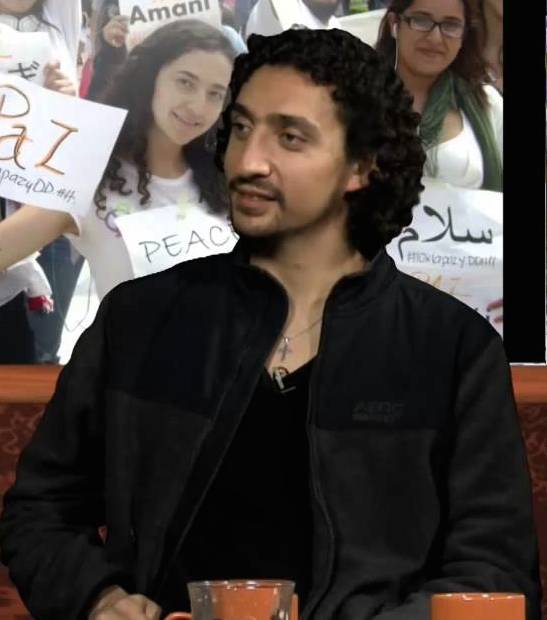
Human rights defender's story: Alberto Solis Castro from Mexico
Alberto Solis Castro highlights the struggles of indigenous communities in Mexico against the overpowering influence of international businesses and the government's role in repressing local opposition to protect corporate interests.
Alberto Solis Castro first gained exposure to human rights issues amongst the indigenous population of Mexico at a young age, when he worked with local indigenous communities as a teenager. He worked as an observer to the peace process between the Zapatistas and the Mexican government, and in doing so began to understand how people in these indigenous communities lived and what they needed.
Much of Alberto’s current work with Servicios y Asesoría para la Paz (SERAPAZ) is intertwined with the changing situation of indigenous communities in Mexico.
‘We do a lot of work with communities who have issues with international businesses; they are constantly struggling to defend their land and national resources from corporations.’
Mining remains the largest threat, with over one third of Mexican land conceded to various extractive corporations, but there have been conflicts over projects ranging from wind farms to aqueducts to dams.
The unbalanced power of government and businesses
A defining feature of human rights violations in relation to business in Mexico is the unequal power dynamic between the government and businesses.
‘The companies have a lot of power, and they are constantly giving orders to the government. So the government under a lot of pressure, which in many cases culminates in a repression of local communities to appease businesses. Sometimes businesses also blackmail the government; they demand that the government ensure that there is no social backlash from their project, or else the business will levy a huge fee for stopping the project. In the end, either the project will go forward or the government will pay the fee using money from the people’s taxes. So they always win, they can win every case one way or another.’
Occasionally, businesses will make arrangements with organised crime syndicates. This is often done with the implicit agreement of the municipal authorities, creating an oppressive and dangerous environment for all defenders and activists. This was most notable in the case of the 43 disappeared students in Ayotzinapa, but is also a threat faced daily by defenders of human rights in business. There have been multiple cases of defenders who were murdered, disappeared, or killed in suspicious accidents.
The responsibility of international actors
Alberto pinpoints the need for international actors – international NGOs, intergovernmental organisations, multinational corporations – to work together with the State to address these human rights violations. On their own, he says, they have not made much of a change.
‘The Mexican Government has passed legislation to protect indigenous communities, but international businesses do not follow it. The UN has legislation to protect economic, cultural and social rights, but the Mexican government will not ratify it. It is very important that we come at this problem from all sides.’
He also calls for international regulations on multinational corporations’ operations. Many of the companies working in Mexico are from other nations – particularly Spain – and they enjoy a certain amount of freedom in the way they run their businesses abroad. Alberto states that a key aspect that needs to be addressed is the lack of information, or even misinformation, shared with locals by companies.
‘Businesses are just trying to sell something, so of course they only share the positive aspects of their projects with the local communities. I know that that’s how it works. But we need to change their concept of human rights; human rights are an integral part of business, not an obstacle.’
Like many other Latin American and African States, the Mexican government often justifies these exploitative projects as contributing to the development of the country as a whole, and thus worth any local sacrifices. Alberto stresses that vulnerable groups, including poor and indigenous communities, rarely if ever reap any benefits from large scale industrial projects.
‘As long as the Mexican government keeps claiming that these projects are for the “development” of the whole nation, while ignoring the actual needs of the people, it’s difficult to believe that the situation could change anytime soon.’
